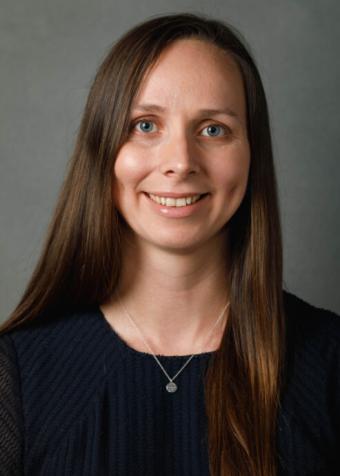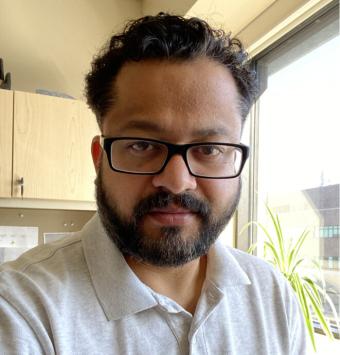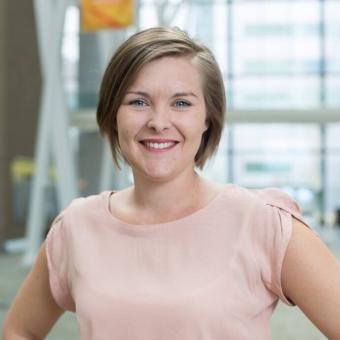- Research
- July 1, 2022
Five Canadian MS Researchers To Get Excited About
Canadians are known for many things – our hockey teams, maple syrup production, and universal healthcare come to mind – but our MS researchers don’t usually top the list. We have every right to brag though! Canadian researchers are at the forefront of MS research around the world. Through generous contributions from donors, corporate sponsors, and fervent fundraisers, the Multiple Sclerosis Society of Canada has invested over $204 million dollars in research since its inception in 1948. Canadian MS researchers are shaping the way the international scientific community looks at MS in areas such as MRI, diagnosis, genetics, tissue repair, rehabilitation, and disease-modifying therapies.
Scientific research is a long, often painfully slow process. The successes of one lab or researcher build on the next and every discovery or prestigious award comes with countless failed experiments, declined grant applications, and hours in the lab.
It’s one thing to celebrate established MS researchers, but investing, elevating, and encouraging up-and-coming MS researchers just starting to make a name for themselves is just as valuable. (Learn about the MS Society of Canada’s training and networking programs here.) This Canada Day, we are featuring some of the early-career MS researchers who were funded in the 2022-2023 Annual Research Competition. (See the full list of funded projects here.) You may not recognize their names, but we promise they will make your heart swell with pride!
Dr. Kristen Krysko

Assistant Professor and Clinician Investigator at the University of Toronto, neurologist at St. Michael’s Hospital
Research Focus: women’s health, pregnancy in people living with MS, the safety of MS treatments before and during pregnancy and postpartum.
“I most enjoy the direct connection between my research and treating women with MS. When I see challenges in the clinic, I can design research studies to help answer the questions raised. I also enjoy applying the results of my research when counseling and treating people with MS, as well as educating other neurologists. This topic is challenging because it involves researching both the woman and her fetus or infant. However, it is critically important so we can appropriately treat MS around pregnancy, as well as ensure safety of the fetus or infant.”
Dr. Deepak Kaushik

Assistant Professor at Memorial University of Newfoundland
Research Focus: understand the immuno-metabolic signaling within myeloid cells (which include dendritic cells, monocytes, macrophages and microglia) in those living with MS and study biomarkers for the early diagnosis of the disease and identify therapeutic targets for the treatment/management of MS.
“Through MS Society of Canada events, I have been fortunate to connect with several people living with MS and their caregivers. I’m always humbled by these experiences and the magnitude of belief they hold in researchers like me. It is this very faith and these expectations that keep myself and my research team motivated and inspired.”
Dr. Jo Anne Stratton

Assistant Professor at McGill University
Research Focus: understanding the ependymal cell, a critically understudied glia cell in the central nervous system that is important for maintaining cerebrospinal fluid flow and brain homeostasis, and its role in MS and neurodegeneration.
“MS is a devastating disease that starts in early adulthood and results in a long life of challenges. My dad had MS and it inspired me to pursue research to find a cure. Understanding the mechanisms of disease is critical to better treating this disease.”
Dr. Carlos Camara-Lemarroy

Assistant Professor at the University of Calgary
Research Focus: the gut-brain axis, biomarkers and neuroprotection in MS with an emphasis on translational research (taking research insights from the bench to the clinic and back).
“I enjoy the multidisciplinary environment of my research along with the privilege to work both in the clinic and the lab. The research funding from the MS Society of Canada is fundamental – it is allowing my lab to establish itself within the highly competitive field. I am thankful for the support from the MS Society!”
Dr. Raphael Schneider

Assistant Professor at the University of Toronto and neurologist at St. Michael’s Hospital
Research Focus: with a particular interest in the connection between radiologically isolated syndrome (RIS) and MS, identifying biomarkers in people living with MS to improve clinical care.
“I have always been interested in research with the potential to clarify what the earliest signs or symptoms of MS may mean for the patients we see in the clinic. During my medical degree in the early 2000s, I began to explore the research being done about multiple sclerosis. At the time, the concept of the clinically isolated syndrome (CIS) being an early presentation of MS was relatively new. Today, we know much more about CIS and how to advise people living with CIS who I see in the clinic than 20 years ago.”
- Log in to post comments

